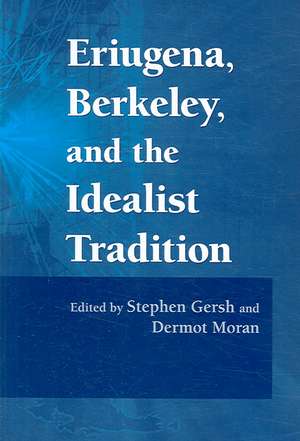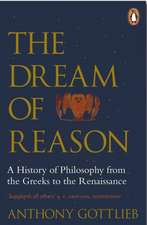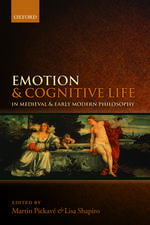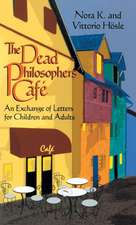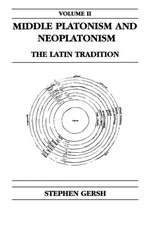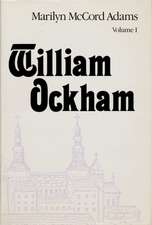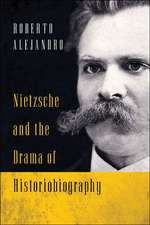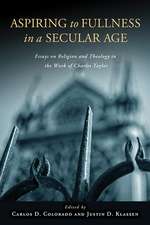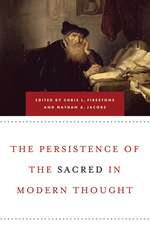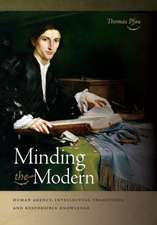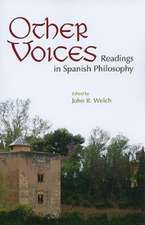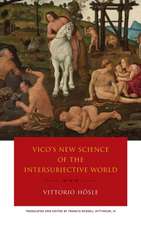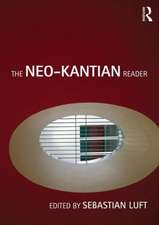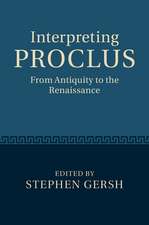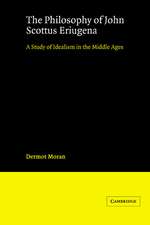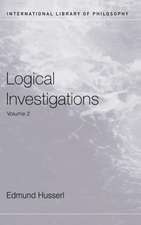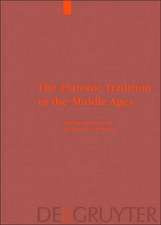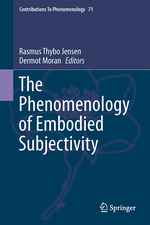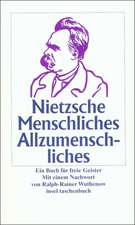Eriugena, Berkeley, and the Idealist Tradition
Autor Stephen Gersh, Dermot Moranen Limba Engleză Paperback – 14 noi 2006
| Toate formatele și edițiile | Preț | Express |
|---|---|---|
| Paperback (1) | 276.55 lei 43-57 zile | |
| MR – University of Notre Dame Press – 14 noi 2006 | 276.55 lei 43-57 zile | |
| Hardback (1) | 695.98 lei 43-57 zile | |
| MR – University of Notre Dame Press – 14 aug 2022 | 695.98 lei 43-57 zile |
Preț: 276.55 lei
Nou
Puncte Express: 415
Preț estimativ în valută:
52.92€ • 55.40$ • 43.79£
52.92€ • 55.40$ • 43.79£
Carte tipărită la comandă
Livrare economică 07-21 aprilie
Preluare comenzi: 021 569.72.76
Specificații
ISBN-13: 9780268029692
ISBN-10: 0268029695
Pagini: 328
Dimensiuni: 151 x 228 x 20 mm
Greutate: 0.43 kg
Ediția:1st Edition
Editura: MR – University of Notre Dame Press
ISBN-10: 0268029695
Pagini: 328
Dimensiuni: 151 x 228 x 20 mm
Greutate: 0.43 kg
Ediția:1st Edition
Editura: MR – University of Notre Dame Press
Recenzii
“This is a very rich volume and constitutes a good starting point for a discussion of the multiple meanings of 'idealism.' In particular, it teaches the lesson that broad 'philosophical' definitions should be held in deep suspicion unless tied to specific contexts of discussion and specific historical periods.” —Journal of the History of Philosophy, 46:4, October 2008
“All fourteen essays collected in this volume are solid pieces of scholarship, and the book as a whole is a welcome addition to the ongoing debate on the role that the history of philosophy can play in enriching our conceptual apparatus by reminding us of the complexity of our philosophical tradition. The book succeeds in reminding us that idealism is a constellation of different positions.” —The Review of Metaphysics, 61, 2, December 2007
Notă biografică
STEPHEN GERSH is professor of philosophy at the Medieval Institute, University of Notre Dame. He is the author of, among other titles, Middle Platonism and Neoplatonism: The Latin Tradition (Notre Dame Press, 1986).
DERMOT MORAN is professor of philosophy at University College, Dublin, and a Member of the Royal Irish Academy. His most recent book is Edmund Husserl, Founder of Phenomenology.
DERMOT MORAN is professor of philosophy at University College, Dublin, and a Member of the Royal Irish Academy. His most recent book is Edmund Husserl, Founder of Phenomenology.
The contributors include: Vasilis Politis, John Dillon, Vittorio Hösle, Gretchen Reydam-Schils, Andrew Smith, Jean Pépin, Dermot Moran, Stephen Gersh, Agnieszka Kijewska, Peter Adamson, Bertil Belfrage, Timo Airaksinen, Karl Ameriks, and Walter Jaeschke.
Descriere
The contributors cover a wide range of philosophical writers and texts to which the label “idealism” has been or might reasonably be attached. These include Plato, the Roman Stoics, the Neoplatonism of Plotinus, Augustinian Neoplatonism, Johannes Scottus Eriugena, the Arabic Book of Causes, George Berkeley, Immanuel Kant, and classical German idealism.
"This is a rich, subtle, thought-provoking collection on central, though neglected topics in idealism and its history, offering fresh and important insights into both familiar and less familiar major figures, views, and issues. Most important, perhaps, are its presentation and assessment of non-subjective forms of idealism, as well as mind-dependence forms of idealism prior to Descartes. Contemporary philosophers have become sophisticated about various forms of realism, anti-realism and irrealism. Such discussions, among others, will benefit significantly by accepting this volume’s invitation to become more sophisticated about idealism as well. This very welcome contribution to the literature should find a broad readership." —Kenneth R. Westphal, University of East Anglia
"If it is true—as Hegel and his followers have claimed—that being and truth are indissociable from history, then philosophy cannot be successful if it limits itself exclusively to investigations of individual thinkers and periods. What is at stake, ultimately, is the development of Western thought as a whole. In this volume, a fine international group of scholars investigate the meaning of idealism across the ages. Without sacrificing nuance, their contributions show that a core of shared assumptions characterizes idealist philosophies. The historical dialogue which this volume advances emphasizes the relevance of ancient and medieval thinkers for the current debate, but it also challenges us to place modern representatives of idealism—such as Berkeley, Kant, and Hegel—in historical perspective." —Philipp W. Rosemann, University of Dallas
